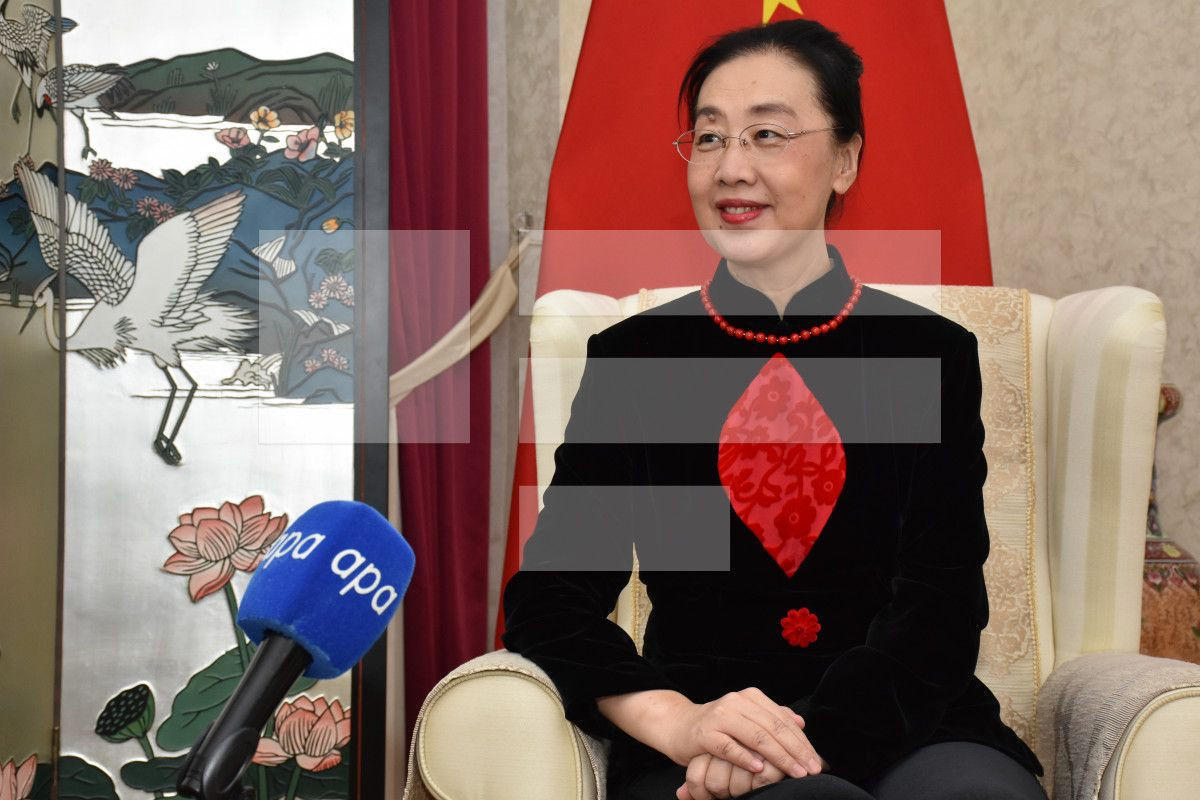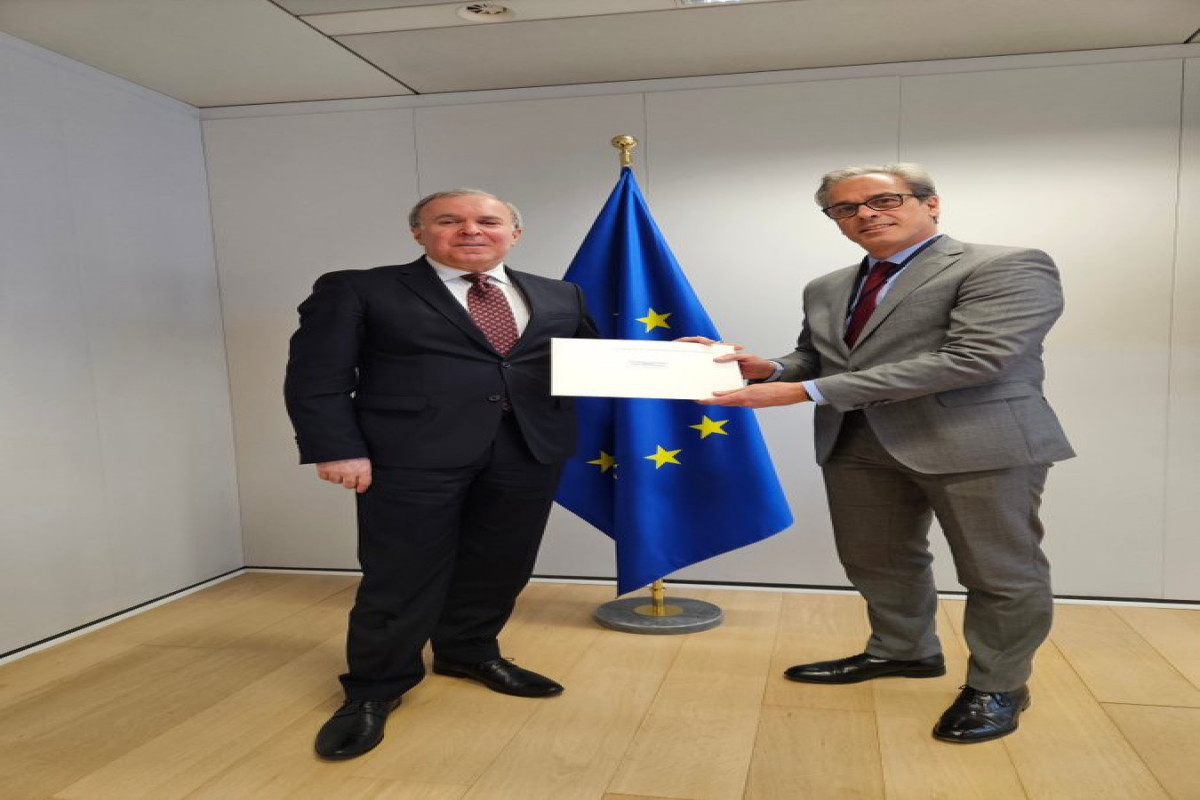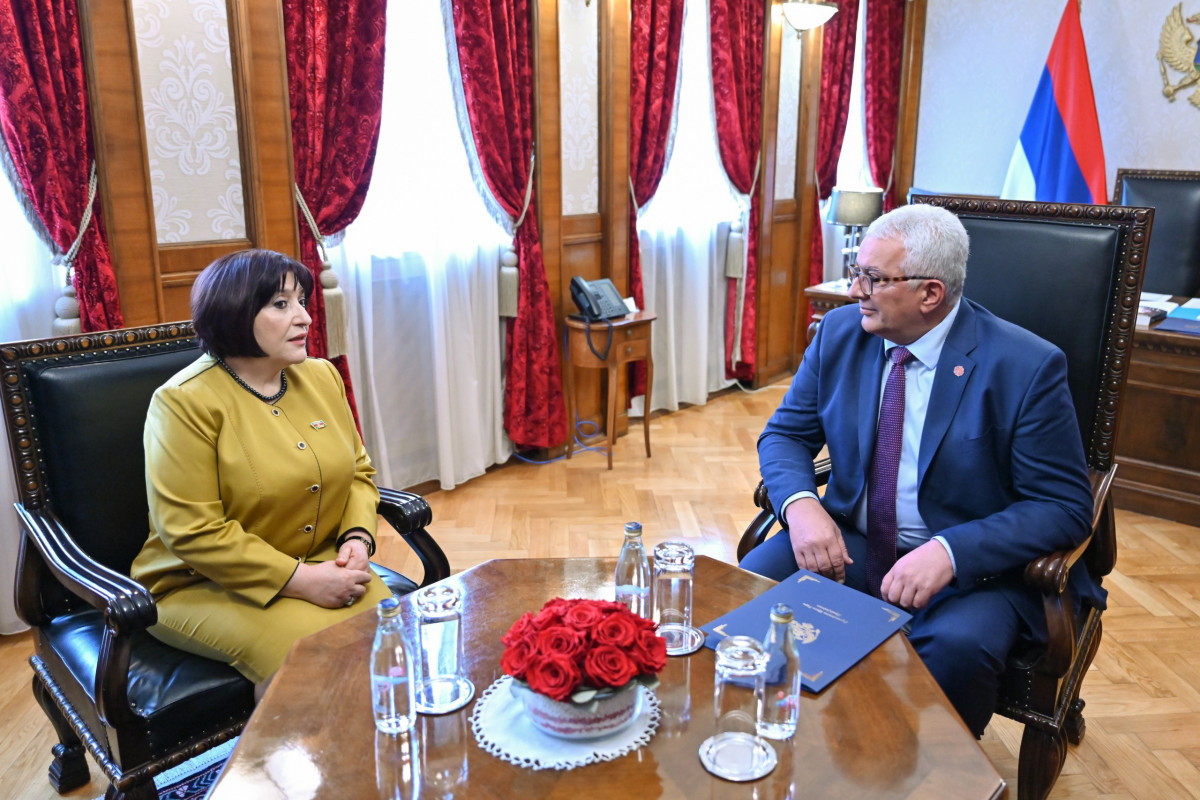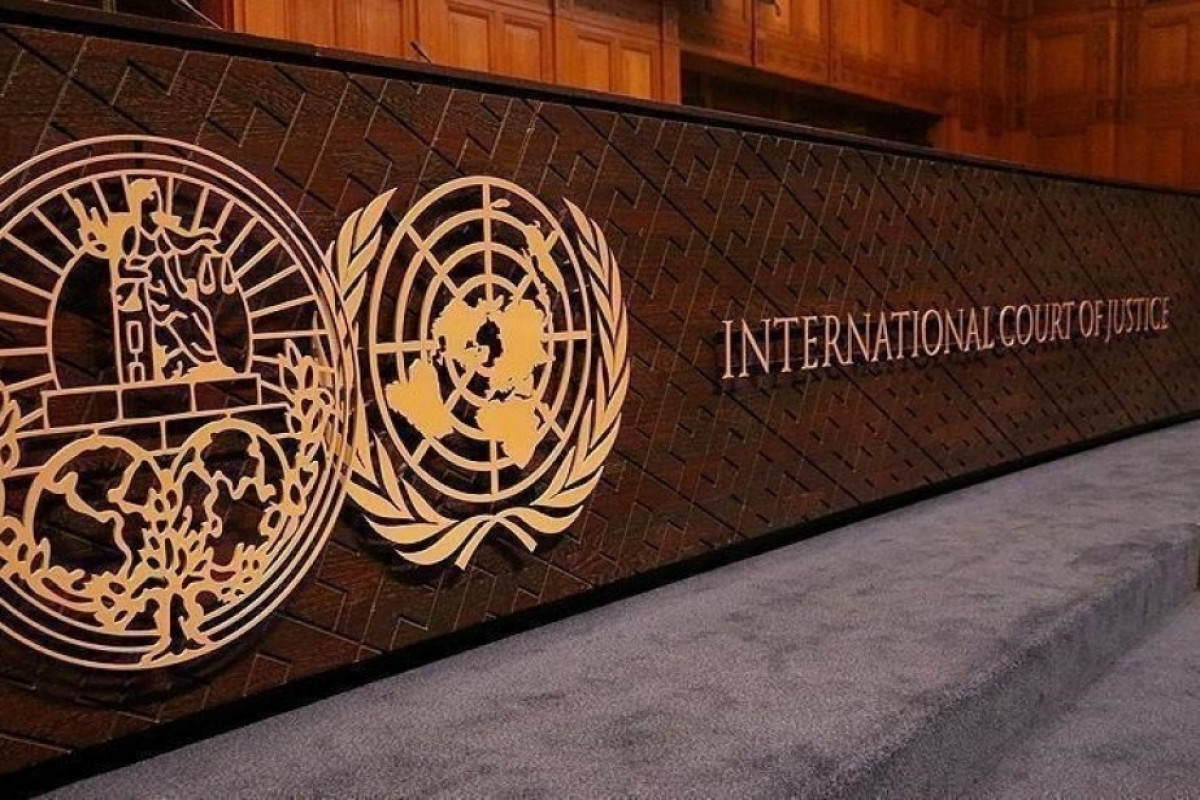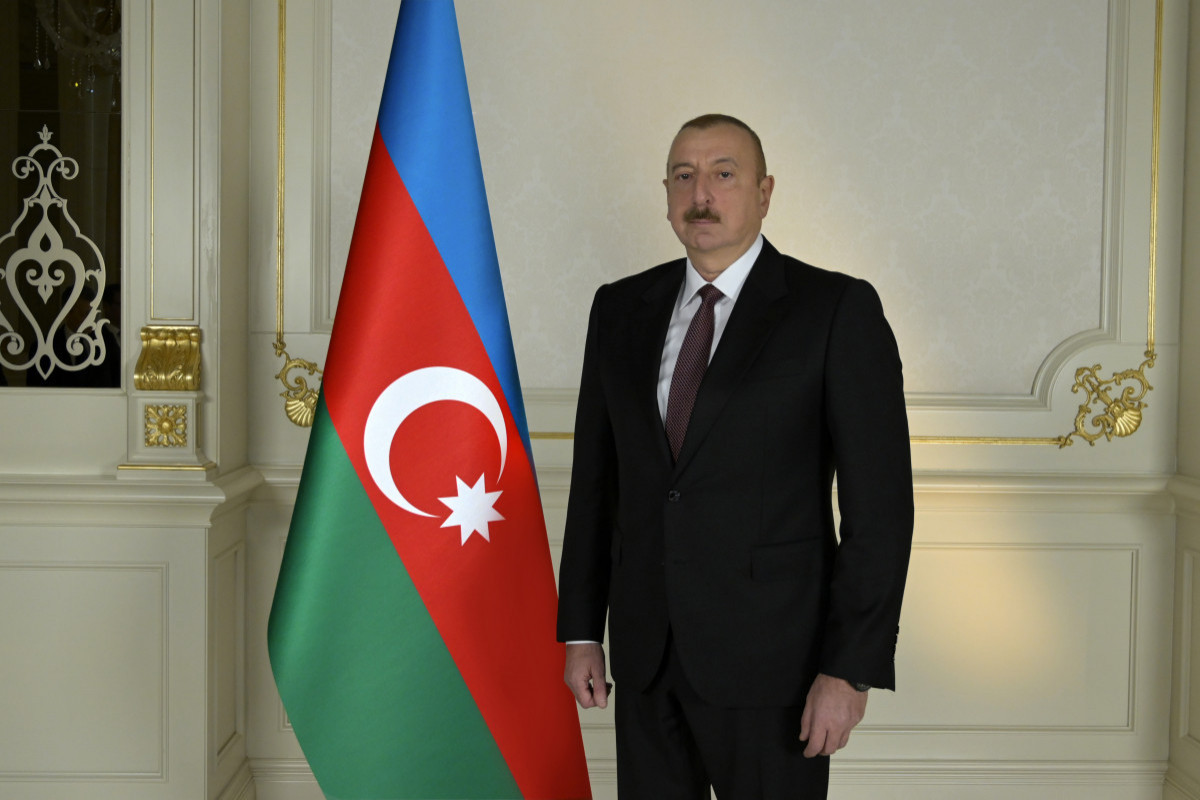Ambassador of the People's Republic of China (PRC) to Azerbaijan Guo Min interviewed by APA Agency
– The year 2022 marks the 30th anniversary of the establishment of diplomatic relations between China and Azerbaijan. What is your comment on current China-Azerbaijan relations? And how do you see its prospects?
– As you mentioned, this year marks the 30th anniversary of the establishment of China-Azerbaijan diplomatic ties. During the past 30 years, China-Azerbaijan relations have maintained a strong development momentum under the strategic guidance of the two heads of state, with cooperation in various fields achieving remarkable results. Standing together through thick and thin over the past 30 years, China and Azerbaijan have ensured that the friendly and cooperative partnership between the two countries remains a shining example of state-to-state relations.
Despite the great changes in the world, China and Azerbaijan have always firmly supported each other regarding the development path befitting their respective national conditions, pursued national rejuvenation and unity, and self-improvement respected each other’s sovereignty and territorial integrity and accommodated each other’s core interests and major concerns. China-Azerbaijan relations have been deepening along the way. President Xi Jinping and President Ilham Aliyev have attached great importance to the development of bilateral relations and stayed in close strategic communication, jointly drawing a blueprint to guide the future development of Chin-Azerbaijan relations.
President Xi Jinping met with President Aliyev in Samarkand in September 2022. They reached an important consensus on the future development of bilateral relations, stressing that both sides should view and plan for bilateral ties from a strategic height, increase strategic mutual trust, strengthen mutual support, deepen mutually beneficial cooperation and work for steady, in-depth, and practical cooperation in various fields between the two countries. China is willing to join hands with Azerbaijan to implement the common understanding between the two heads of state, build on strong political mutual trust, magnify the role of good-neighborly friendship, share development opportunities, and promote people-to-people bonds, enhance continuous leap-frog development of China-Azerbaijan relations, make greater contributions to peace and stability, growth and prosperity in the region and worldwide, and build together a China-Azerbaijan community with a shared future in the new era. China believes that with the personal care and promotion of the two heads of state, China-Azerbaijan relations will open up bright new prospects and sail into a new stage featuring greater maturity and more connotations.
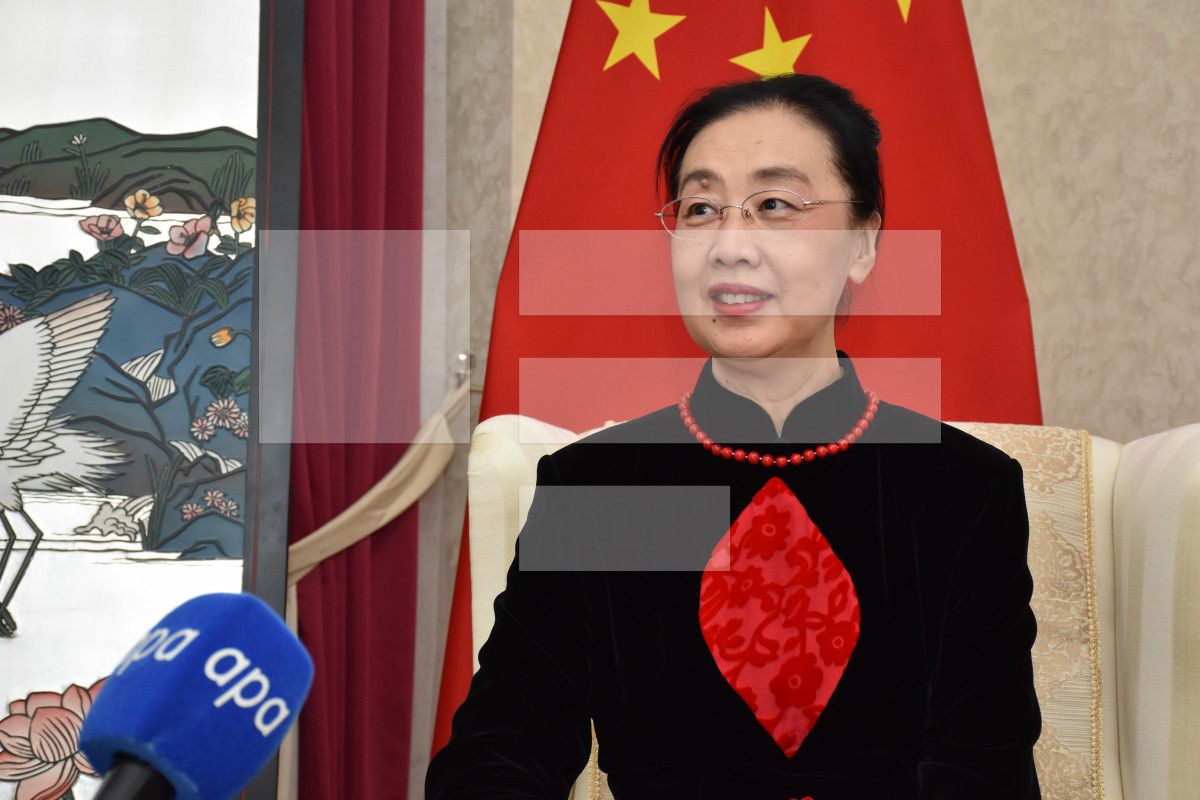
– How do you see China-Azerbaijan bilateral trade? What measures will China take to enhance bilateral economic and trade cooperation?
– China-Azerbaijan bilateral trade has increased by 18% in 2022 despite unfavorable factors such as the instability of the global industrial chain and supply chain, proving that China-Azerbaijan trade relations are firm and stable. Chinese enterprises attach great importance to the Azerbaijan market. Advanced manufacturing products such as machinery and equipment, electronic products, and automobiles, replacing commodities like textiles, shoes, hats, and others that were exported from China to Azerbaijan ten years ago, help to enrich the experience of Azerbaijan consumers and play a positive role in the economic development and industrial transformation and upgrading of Azerbaijan. China also actively supports the export of quality and featured products from Azerbaijan to China and has invited Azerbaijan to participate in the China International Import Expo and other leading international exhibitions focused on the Chinese market. The economic and trade exchanges between the two sides have been further intensified, showing a good momentum of development.
As we advance, China is willing to work with Azerbaijan under the guidance of the essential common understanding of the two heads of state to build more platforms for further mutual exchanges between business, local, and industry representatives from both sides by expanding the scale of bilateral trade, optimizing the commodity structure of trade, and facilitating trade and investment. To do so, we shall attract more capable Chinese enterprises to participate in mutually beneficial collaborative projects with Azerbaijan in infrastructure, digital economy, green energy, processing and manufacturing, modern agriculture, finance, and other fields while continuing to support Azerbaijan companies in exploring the Chinese market through exhibitions, cross-border e-commerce, and other channels so that companies and people in both China and Azerbaijan benefit and gain more.
– How would you evaluate the importance of the Middle Corridor in promoting East-West trade and economic exchanges? What about the prospects?
– The Middle Corridor, which is highly compatible with China’s Belt and Road initiative, is significant in enhancing regional connectivity, promoting economic and social development along the route, and safeguarding the global supply chain. It has helped, in particular, to ensure the stable and smooth operation of the China-Central Asia-Caucasus-Europe transport route under the new circumstances of 2022. From January to August, the number of China-Europe freight trains passing through the Middle Corridor increased by 34% year-on-year; it is expected that the number of train trips will reach a new high throughout the year with additional new lines that have departure stations in many Chinese cities. China believes that China-Azerbaijan collaboration in cross-border transportation will make a new highlight and growth point.
In the context of a world economy in urgent need of recovery, China looks forward to strengthening exchanges and cooperation with Azerbaijan and other countries along the Corridor so that we can jointly promote the high-quality connection between the Belt and Road and the Middle Corridor, and drive the flow of information, capital and personnel with the growth of logistics flow to provide new impetus for the development of countries along the Belt and Road and the Middle Corridor as well as regions concerned. China is willing to share development opportunities and create a bright future with Azerbaijan.
– We have witnessed the recent success of the 20th National Congress of the Communist Party of China. What important arrangements has it made for China’s future development?
– The 20th National Congress of the Communist Party of China is a meeting of great importance. It takes place at a critical time as the entire Party and the Chinese people of all ethnic groups embark on a new journey to build China into a modern socialist country in all respects and advance toward the Second Centenary Goal. From this day forward, the central task of the Communist Party of China will be to lead the Chinese people of all ethnic groups in a concerted effort to realize the Second Centenary Goal of building China into a great modern socialist country in all respects and to advance the rejuvenation of the Chinese nation on all fronts through a Chinese path to modernization.
Chinese modernization is socialist modernization pursued under the leadership of the Communist Party of China. It contains elements that are common to the modernization processes of all countries, but it is more characterized by features that are unique to the Chinese context. It is the modernization of a huge population, the modernization of common prosperity for all, the modernization of material and cultural-ethical advancement, the modernization of harmony between humanity and nature, and the modernization of peaceful development. China abandons the Western path of modernization that is capital-centered, polarized, full of materialism, expansion, and pillage, and it will never go down the beaten track of big powers seeking hegemony or war. Chinese-style modernization breaks the myth of “Modernization equals Westernization” and expands the channels for developing countries to achieve modernization, sharing Chinese wisdom and a Chinese approach for mankind to exploring better social systems.
_1670317481.jpeg)
– According to the 20th National Congress of the Communist Party of China, China will create an enabling international environment for development to achieve the Second Centenary Goal. What will China’s future foreign policy be to give full play to its global role, strengthen good-neighborly relations, and develop friendly cooperation with other countries against the backdrop of the current international situation?
– At present, momentous changes of a like not seen in a century are accelerating across the world. A new round of scientific and technological revolution and industrial transformation is well underway, and a significant shift is taking place in the international balance of power, presenting China with new strategic opportunities in pursuing development. At the same time, however, the once-in-a-century pandemic has had far-reaching effects; a backlash against globalization is rising; and unilateralism and protectionism are mounting. The global economic recovery is sluggish, regional conflicts and disturbances are frequent, and global issues are becoming more acute. The world has entered a new period of turbulence and change.
Facing risks and challenges of a kind rarely seen in the world and history, China remains firm in pursuing an independent foreign policy of peace and respects the sovereignty and territorial integrity of all countries. It stays true to the principle of equality of all countries, big or small, strong or weak, and rich or poor, and it stands firmly against all forms of hegemonism and power politics. China adheres to the Five Principles of Peaceful Coexistence in pursuing friendship and cooperation with other countries. It is committed to promoting a new type of international relations, deepening and expanding global partnerships based on equality, openness, and cooperation. China works to build major-country relations featuring peaceful coexistence, overall stability, and balanced development. Acting on the principles of amity, sincerity, mutual benefit, and inclusiveness and the policy of forging friendships and partnerships with its neighbors, China strives to enhance friendly ties, mutual trust, and converging interests with its neighboring countries. Guided by the principles of sincerity, real results, affinity, and good faith and with a commitment to the greater good and shared interests, China endeavors to strengthen solidarity and cooperation with other developing countries and safeguard the common interests of the developing world. China is committed to its fundamental national policy of opening to the outside world and pursues a mutually beneficial strategy of opening up. It strives to contribute its share to building an open global economy that delivers greater benefits to all peoples. China plays an active part in the reform and development of the global governance system. It pursues a vision of global governance featuring shared growth through discussion and collaboration. China upholds true multilateralism and works to make global governance fairer and more equitable. For its part, China has always been committed to its foreign policy goals of upholding world peace and promoting common development. It is dedicated to promoting the building of a human community with a shared future, and it spares no effort to advance the historical course of realizing national rejuvenation and promoting human progress.
– While the international community generally recognizes the one-China principle, it comes to Azerbaijan’s attention that some countries have repeatedly violated their commitments (for example, the speaker of the U.S. House of Representatives, Nancy Pelosi, visited Taiwan). What is the status quo of the Taiwan question? Please brief us on China’s position on this issue.
– Taiwan is an inalienable part of China’s territory, and the Taiwan question is purely an internal affair of China. On August 2, 2022, in disregard of China’s strong opposition and serious representations, Speaker of the U.S. House of Representatives Nancy Pelosi visited China’s Taiwan region. This is a serious violation of the one-China principle and the provisions of the three China-U.S. Joint Communiqués. It has a severe impact on the political foundation of China-U.S. relations, and seriously infringes upon China’s sovereignty and territorial integrity. It gravely undermines peace and stability across the Taiwan Strait, and sends a seriously wrong signal to the separatist forces for “Taiwan independence.” China firmly opposes and sternly condemns this, and has made serious démarche and strong protest to the United States.
There is but one China in the world. Taiwan is an inalienable part of China’s territory, and the Government of the People’s Republic of China is the sole legal government representing the whole of China. That is the core of the one-China principle, a universal consensus of the international community, and a basic norm in international relations. Since the founding of the People’s Republic of China in 1949, 181 countries, including the United States, have established diplomatic relations with China on the basis of the one-China principle. The position of the Chinese Government and people on the Taiwan question has been consistent. It is the firm commitment of the more than 1.4 billion Chinese people to resolutely safeguard state sovereignty and territorial integrity. It is the common aspiration and sacred responsibility of all Chinese sons and daughters to realize the complete reunification of the motherland.
On November 14, 2022, President Xi Jinping had a meeting with U.S. President Joe Biden in Bali, Indonesia. The two presidents had a candid and in-depth exchange of views on issues of strategic importance in China-U.S. relations and on major global and regional issues. President Xi gave a full account of the origin of the Taiwan question and China’s principled position. He stressed that the Taiwan question is at the very core of China’s core interests, the bedrock of the political foundation of China-U.S. relations, and the first red line that must not be crossed in China-U.S. relations. Resolving the Taiwan question is a matter for the Chinese and China’s internal affair. It is the common aspiration of the Chinese people and nation to realize national reunification and safeguard territorial integrity. Anyone that seeks to split Taiwan from China will be violating the fundamental interests of the Chinese nation; the Chinese people will absolutely not let that happen! We hope to see, and are all along committed to, peace and stability across the Taiwan Strait, but cross-Strait peace and stability and “Taiwan independence” are as irreconcilable as water and fire. President Biden said that the United State adheres to the one-China policy, does not support “Taiwan independence,” does not support “two Chinas” or “one China, one Taiwan,” and has no intention to use Taiwan as a tool to seek advantages in competition with China or to contain China. We hope that the U.S. side will match its words with action and abide by the one-China policy and the three joint communiqués.
China and Azerbaijan are genuinely strategic partners. China appreciates Azerbaijan’s efforts in abiding by the one-China principle, strongly opposing any attempts to interfere in China’s domestic affairs and split China, and firmly supporting China in safeguarding its core interests. China cherishes China-Azerbaijan friendship and is willing to work with Azerbaijan to safeguard the basic norms of international relations and maintain regional and world peace and stability.


